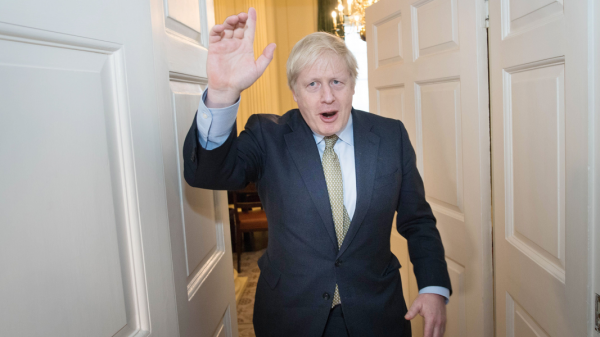Newly elected UK government set to bring about changes to the UK Gambling Act
Now that Boris Johnson’s/Dominic Cummins’ Conservative party have been elected by UK voters to parliament for the next five years, the Conservatives have said they will work on ensuring the 2005 Gambling Act is brought into the digital age.
Prior to the UK general election, each of the main three political parties in the UK (Labour, Conservative and Liberal Democrats) had pledged in their manifestos that they would review the certainly outdated Gambling Act.
What will the Conservatives change?
Put simply – nobody knows. Other than promising to “legislate to make the UK the safest place in the world to be online” their manifesto details (in general but also on this specific point) were and still are vague. They went on to describe the Gambling Act in its current state as “increasingly becoming an analogue law in a digital age”. It is likely that they are referring to issues regarding loot boxes within video games and credit card misuse as well as Google ad manipulation.
Last September the Digital, Culture, Media and Sport committee called on the government to class loot boxes as games of chance which would therefore ensure they would be subjected to the UK Gambling Act.
Video game gambling
An increasing number of video game companies are releasing video games that include in them microtransactions. These often come in the form of in-game items which players are able to buy using real money. Former Snooker World Champion Neil Robertson, who was once addicted to purchasing these loot boxes, has called for them to be banned due to the number of children that are able to freely purchase them.
“It has come to the point where these gaming companies are making a living off of gambling edges,” Robertson told Game Quitters, a website dedicated to helping people overcome addictions to video games.
“Already this sort of gambling is available for kids. If kids aren’t becoming addicted to the video game itself, they are becoming addicted to the gambling aspect of the game. This sort of thing just shouldn’t be allowed whatsoever.”
There are an ever-increasing number of voices calling for loot boxes in video games to fall under the Gambling Act. William Coombes, from casino affiliate and online slots website Labslots.com has called for video game gambling laws to be equally as restrictive as they are for online casinos.
“Casinos online are subjected to a wide range of strict regulations,” Coombes states.
“However, the same scrutiny has not yet been applied to video which are arguably more dangerous, they at least have the same addictive effect, even more so due to the nature of loot boxes.
“I certainly think that in the future, the same regulations which are applied in the casino industry will be applied to video games. Children are playing these games – regulations must be applied as soon as possible.”
Credit Card Gambling
The Liberal Democrats manifesto stated their intention to for a blanket ban on all credit card gambling in the UK. Whilst it is extremely unlikely that the Conservatives will ban all credit card gambling, they have stated that they will “continue to take action” when it comes to gambling addiction – this is again extremely vague.
The UK Gambling Commission (UKGC) launched a trial run on credit card restrictions last August which ended in November. However, this ruling is likely to be hugely fought against by the gambling industry.
Tech Company Advertisement
Although Google Ads are unlikely to become subjected to the gambling act specifically, UK law makers need to ensure that Google ads are heavily scrutinised. Unfortunately, it is doubtful that the new Conservative government will address issues in regard to this. Their election winning campaign almost entirely centred around their purchasing of Google ads for their message to appear at the top of search results for a variety of keywords that voters were typing into Google. The Conservatives bought, what was essentially first place on Google search engines in the UK for the keyword ‘Labour Manifesto’ for example.
Conservative advertisement was not only focussed on Google search engines. According to Forbes.com, the thousands of misleading ads the Conservative party bought on Facebook helped the party to a crushing election victory.
What Next?
The Gambling Act’s lack of contemporaneity and the way a political party was able to use social media advertising to huge advantage to arguably swing a General Election in their favour, is more than enough evidence to the fact that UK laws have becomes seriously outdated. Technology has changed the world.
Companies within the iGaming sector should expect some fight from the UK government in 2020 but it is likely that there will not be large scale changes to the Gambling Act.














